Brief book review – The Law of Good People: Challenging States’ Ability to Regulate Human Behaviour | G-Reg

Yuval Feldman, 2018, Cambridge University Press, 238 pages
In The Law of Good People: Challenging States’ Ability to Regulate Human Behaviour, Prof Yuval Feldman (Bar-Ilan University) challenges us to think about the need for regulation for ‘good people’ and what such regulation should look like.
Feldman argues that many “ordinary people could engage in all types of wrongdoing without being aware of the full meaning of their behaviour [and that this] greatly complicates the regulatory challenge of states” (p. 1). Feldman is interested in two types of ‘good people’ that may not (always) comply with regulation:
In addition, Feldman identifies:
Feldman’s first central point is that law and regulation typically focus on ‘bad people’ and often through deterrence-oriented regulatory interventions. However, many years of research indicate that such interventions will do little to reduce non-compliance of ‘good people’ (and they are also not found to be overly effective in reducing the wrongdoing of ‘bad people’). This is problematic because a large share of non-compliance can be attributed to ‘good people’ doing bad things.
Feldman’s second central point is that behavioural ethics can help develop and implement regulation to achieve compliance in ‘good people’. Yet, the recent interest in how insights from behavioural economics can improve regulatory outcomes has crowded out regulators’ interest in behavioural ethics. Perhaps more problematically, some of the suggestions from behavioural economics (such as using nudges to help people pursue their self-interest better) may only increase non-compliance by ‘good people’.
Feldman explains that the critical issue of this second point is that non-compliance by ‘good people’ is often situational. Changing incentives that effectively help people to be more self-interested, as behavioural economics suggests, will then not make much difference. Better would be to develop regulation that reduces the likelihood that the erroneous wrongdoers to end up in accidental non-compliance, and that situational wrongdoers can justify their misconduct.
For example, in the work environment, a person may not realize that what they consider a funny comment may be quite hurtful to a colleague. Defining what counts as workplace bullying (i.e., reducing ambiguity) will make it clear for the offender to understand what counts unacceptable behaviour. This reduces the likelihood that the erroneous wrongdoer goes wrong, and it takes away the opportunity for situational wrongdoers to blame ambiguous rules.[1]
To conclude, the book provides regulators with an enriched view of why people comply or not. It also gives them a better understanding of which behavioural insights informed regulatory interventions to use for what regulatory problem. But, most importantly, it highlights that (non-)compliance is often situational and that regulatory interventions should be tuned to the situations in which ‘good people’ may do the wrong thing.
Disclaimer In these brief book reviews, I discuss classic and contemporary books that make up the canon of regulatory scholarship (or help undertake regulatory scholarship). I focus on their central ideas or core notions and aim to keep the reviews to around 500 words. Unfortunately, this implies I must sacrifice a considerable amount of detail from the books reviewed.
[1] Example inspired on: Nadiv, N., & Feldman, Y. (2021). A behavioural ethics approach to employment law and workplace norms. International Journal of Comparative Labour Law and Industrial Relations, 37(2-3), 209-224.
